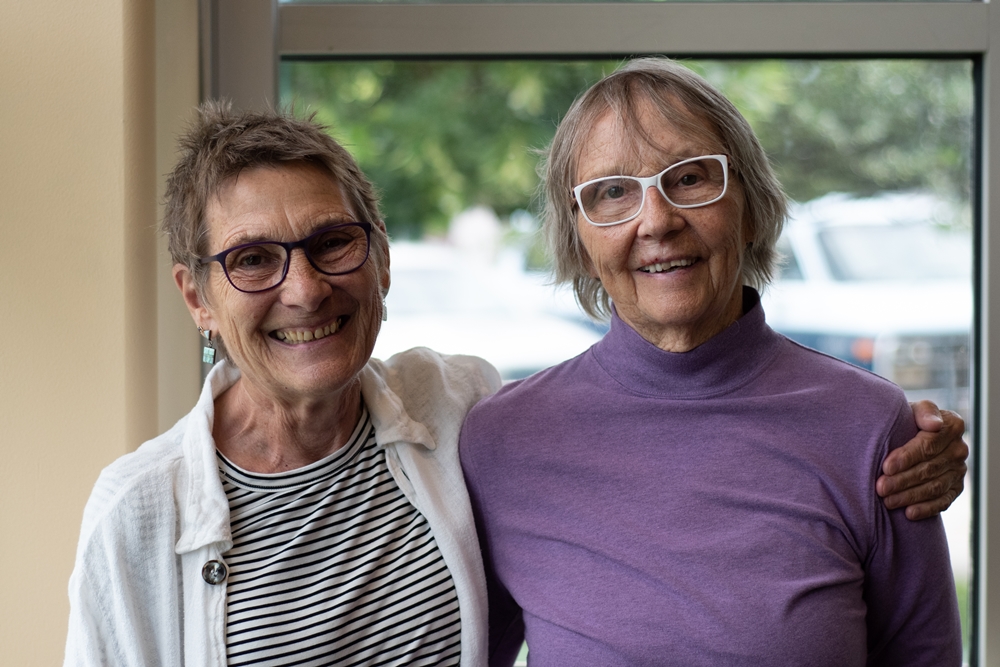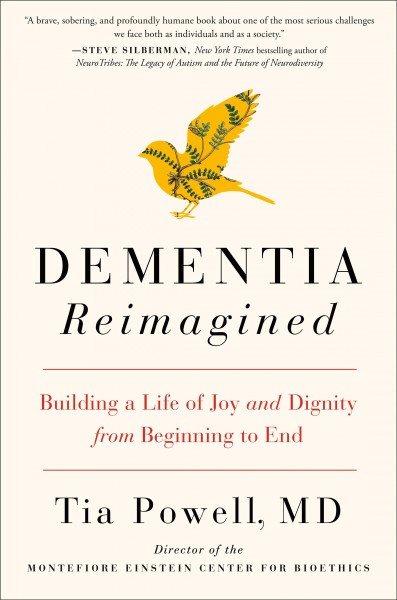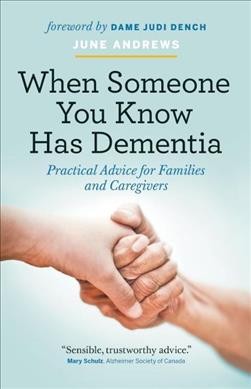Guest blog by Christian Knoll
Dementia is something many people are familiar with. It is a disease characterized by memory loss, forgetfulness, and behavior change. More than 5 million Americans over the age of 65 are diagnosed with dementia, with one-in-ten people over 65 developing the disease. While there is no known cure dementia, support in managing its symptoms are available through Memory Cafes.
Memory Cafes
The Dementia-Friendly Communities of Northern Colorado (DFCNC) offers several programs geared toward improving the lives of dementia patients. One of these programs is the Memory Cafe, a social gathering for people with dementia that offers support through laughter, music, food, and engaging activities. Memory Cafes take place in several locations across the Front Range, with some sessions being housed at the Poudre River Public Library District.
“The library is a place for many people to gather, be social, and connect in meaningful ways,” said Cyndy Luzinski, founder and executive director of the DFCNC. “It also helps people understand what dementia is and how it impacts people through the resources it provides.”

Memory Cafes are different depending on where you go. In the case of the DFCNC, each session is relaxed, welcoming, and tied to a specific theme for participants to muse over. Loved ones are encouraged to participate as well, as they facilitate conversation with their partners and others who are in attendance.
“We try to incorporate all the senses,” said Andrea Scandrett, a certified dementia practitioner and life enrichment coordinator. “We bring food, music, and items for people to reminisce over. Participants are touching, tasting, feeling, smelling, hearing, but most importantly, connecting with each other.”
Understanding Dementia
Contrary to common belief, dementia does not refer to a specific disease. Instead, the word “dementia” serves as an umbrella term that covers an array of cognitive maladies that impairs one’s ability to think, remember, and make decisions.
One of the most common types of dementia is Alzheimer’s Disease, which accounts for more than 60 percent of known cases. However, dementia can come in a variety of forms and affect each person differently. For instance, Lewy Body Dementia, the second most common variant behind Alzheimer’s, is characterized by the loss of cognitive ability in addition to impaired motor skills. Dementia symptoms tend to develop as a person continues to age, with older patients more likely to express a combination of symptoms.
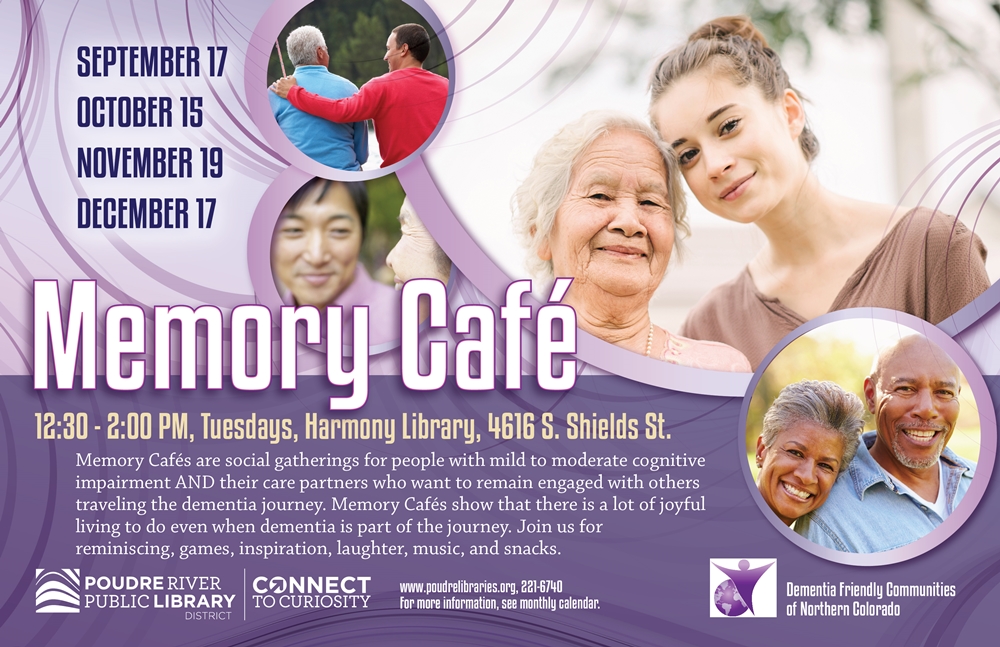
Research in permanently treating dementia is still ongoing. While there is no known cure for the disease, there are several forms of treatment and therapy aimed at improving a person’s quality of life. Depending on the type of dementia, medications can be prescribed to help the brain and manage their corresponding symptoms. Other forms of treatment that do not require medication have been researched and proven effective as well. Incorporating a healthy diet with regular exercise and stimulating the brain through social interaction have shown to offset the disease.
“Cognition decline slows as people are more socially engaged,” Luzinski said. “Memory Cafes allow people to come together and keep themselves sharp while also showing that they are not alone in this journey.”
Select Library Resources
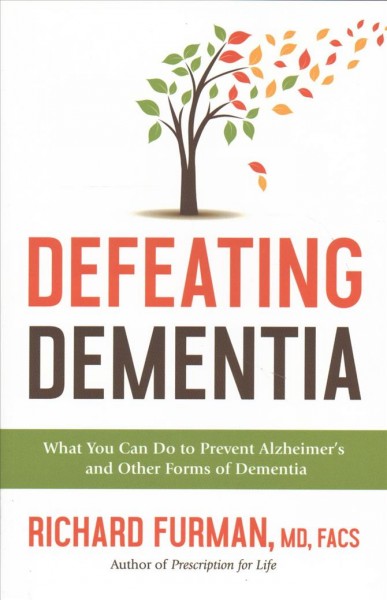
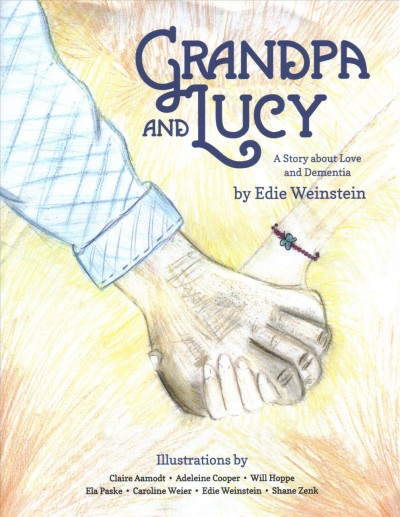
Grandpa and Lucy: A Story About Dementia by Edie Weinstein; illustrated (Children’s)
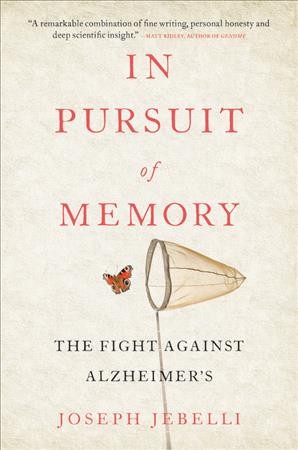
In Pursuit of Memory: The Fight Against Alzheimer’s by Joseph Jebelli
For more information on dementia and the programs offered through the DFCNC, visit their website.
Additional information on dementia and its variants can be found through the Center for Disease Control and Prevention’s website.
About the Author
Christian Knoll is a media specialist with a passion for creative storytelling. He possesses a multitude of interests including photography, videography, graphic design, and writing. His work has been featured on several online platforms, namely Colorado State University’s SOURCE news outlet.
Christian currently volunteers with the Poudre River Public Library District as a digital media specialist. His goals aim to inform the public about many programs and amenities the Library District offers. When he is not working, he spends his time traveling, hiking, or talking with close friends over a freshly brewed cup of coffee. To see more of his work, visit his online portfolio.

